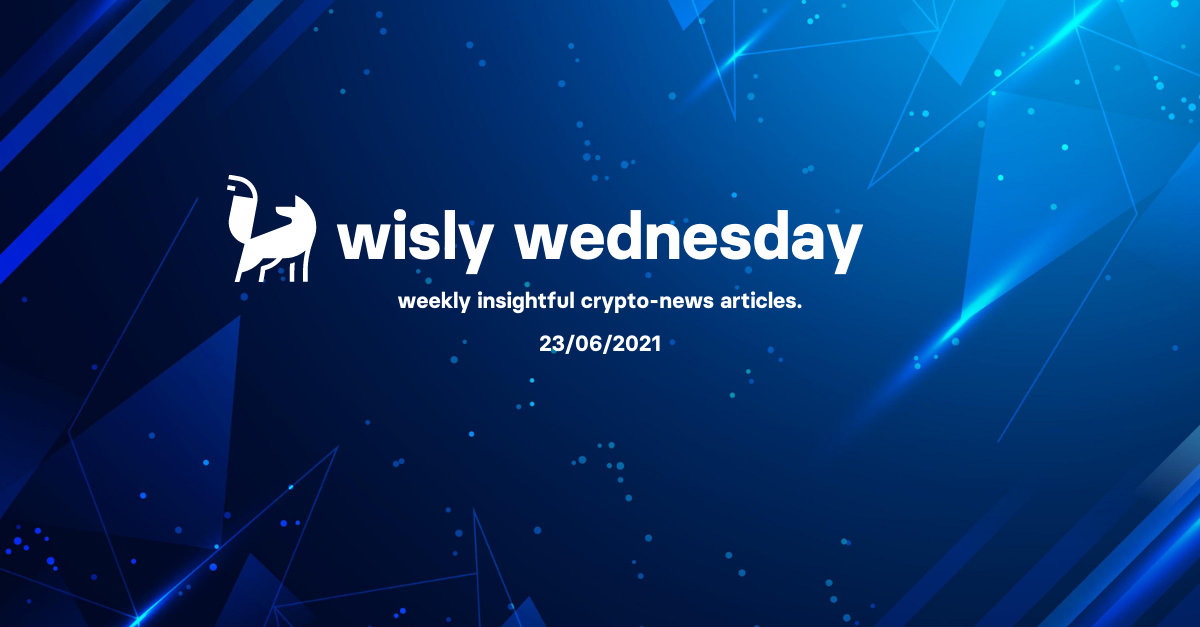It’s been a mixed bag in the world of crypto with some thought-provoking developments taking place across the globe. China’s crackdown on crypto continues; a world-renowned auction house prepares to accept crypto payments; and the World Bank declines to support El Salvador’s adoption of Bitcoin.
China’s crypto crackdown continues with OTC restriction

The People’s Bank of China has ordered all commercial banks within its borders to remove all digital-currency related activities. This order includes all over-the-counter digital currency trading merchants. This directive comes hot off the heels of the Chinese government’s plans to introduce their own digital currency with a recent introduction of 3000 ATMs in Beijing integrated with the digital Yuan ecosystem.
The People’s Bank of China issued a statement to the country’s leading payment providers and banks in an effort to promote its own digital currency programme. While restrictions on crypto trading has grown steadily in China over the years, local traders have found creative ways to circumvent these restrictions. One popular strategy employed by local traders was to use over-the-counter platforms that are powered by established exchanges like OKEx and Huobi, and then follow up with payments through bank transfers or payment platforms such as AliPay.
In the statement issued by the People’s Bank of China, it revealed that it had summoned the Industrial and Commercial Bank of China and the Agricultural Bank of China, amongst others, to discuss the issue of increasing crypto trading in the country. They view over-the-counter trading as a disruption to the financial system of China and felt that it creates the risk of illegal capital outflow from its borders.
ICBC financial professional, Matteo Giovanni, said, “An increased number of Beijing-based bank branches adopting dedicated ATM machines and qualified to convert China’s digital yuan to fiat currency is going to dramatically increase the circulation of digital RMB. Therefore, the adoption of sovereign virtual currency won’t be any more a matter of luck for local residents, but subject to the individual willingness to become an early adopter of what represents the future of money.”
Sotheby’s to accept crypto payments for diamond auction

World famous auction house, Sotheby’s, has announced that it will accept both Bitcoin and Ethereum as payment for a rare pear-shaped diamond that will be up for auction soon. The 101 carat type II diamond, known as The Key 10138, will be the first important diamond to be auctioned with a payment option of cryptocurrency.
The auction of The Key 10138 is planned to be held in Hong Kong on 9 July 2021 and will go under the hammer for an estimated price of between £7 and £11 million. This particular diamond is one of only ten in the world with a size of over 100 carats to come up for auction. Buyers have the option of paying with either Bitcoin, Ethereum, fiat currency, or a combination should they wish.
This ground-breaking announcement follows Sotheby’s recent flirtation in the crypto market with previously conducted auctions for rare non-fungible tokens. A statement from Sotheby’s said, “[The diamond] was named to symbolise the unlocking of a new era in commerce and technology, and thus is a key to history. The Key 10138 will undoubtedly become a diamond that history remembers as it takes the culmination of humanity’s work and knowledge on diamonds thus far, and turns the key to unlock a still more brilliant future”
World Bank declines to support El Salvador’s adoption of Bitcoin

The World Bank has declined requests from El Salvador to help support the country with its implementation of Bitcoin as legal tender due to concerns over the transparency of the digital currency and its harmful impact on the environment. The World Bank chose to distance itself from El Salvador’s cryptocurrency adoption citing the many shortcomings of Bitcoin.
This news comes after a request from El Salvador’s Finance Minister, Alejandro Zelaya, who wanted technical assistance from the World Bank in terms of the implementation of Bitcoin in parallel to the US Dollar in the country. Zelaya mentioned positive discussions with the International Monetary Fund (IMF) on El Salvador’s cryptocurrency adoption despite the IMFs own concerns about macroeconomic, financial and legal issues regarding Bitcoins’ formal use in the country.
A spokesman for the World Bank said, “We are committed to helping El Salvador in numerous ways, including for currency transparency and regulatory processes. While the government did approach us for assistance on Bitcoin, this is not something the World Bank can support given the environmental and transparency shortcomings.”




